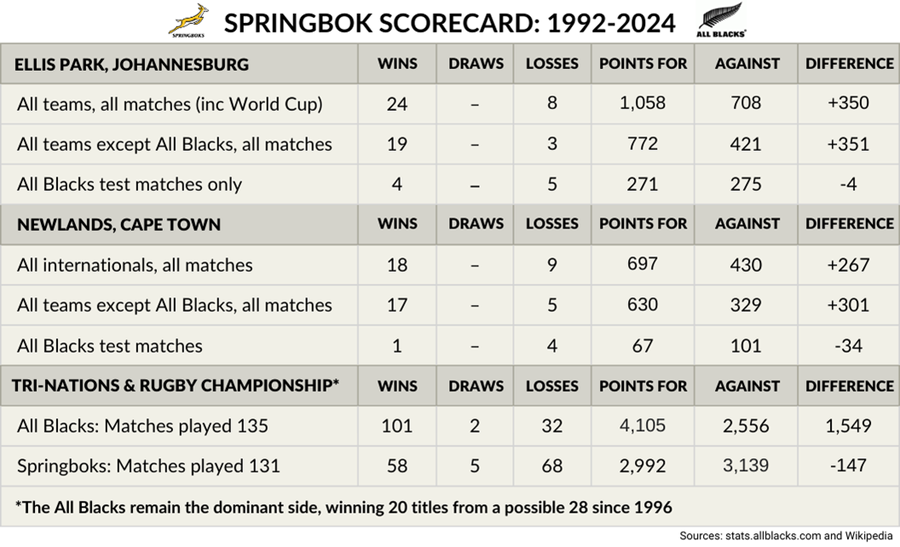In the world of rugby, home advantage is often touted as a game-changer. Such is its potential sway that World Rugby makes an allowance for home games, effectively handicapping the host side when calculating rankings.
Factors such as home crowd support and travel fatigue affect professional teams’ performance, with a five-year study of southern hemisphere teams showing that playing at home offers an average 6.7-point advantage.
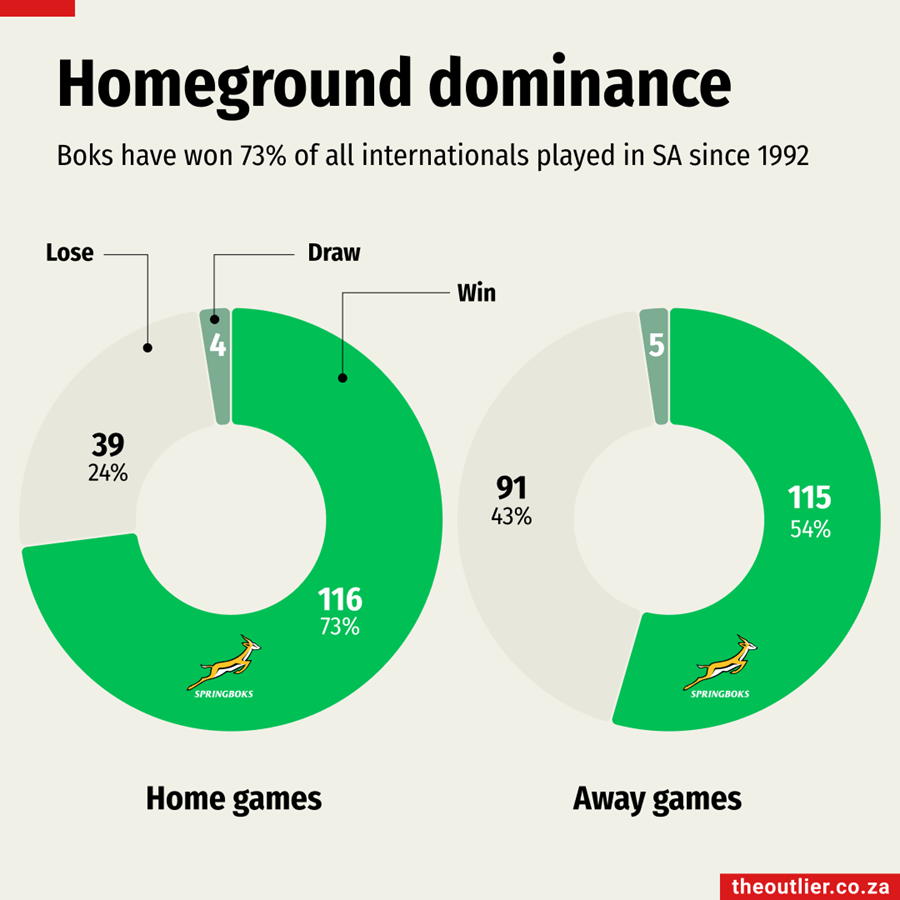
When the Springboks play against the All Blacks, they tend to lose by an average of 8.4 points. They do slightly better when they’re at home, losing by an average of 4.7 points. But when they play in New Zealand, they lose by an average of 12.3 points.
Note: All head-to-head data in this newsletter relates only to test matches between the Springboks and the All Blacks played in either South Africa or New Zealand since 1992. Overall performance refers to all internationals, including tests and World Cup matches.
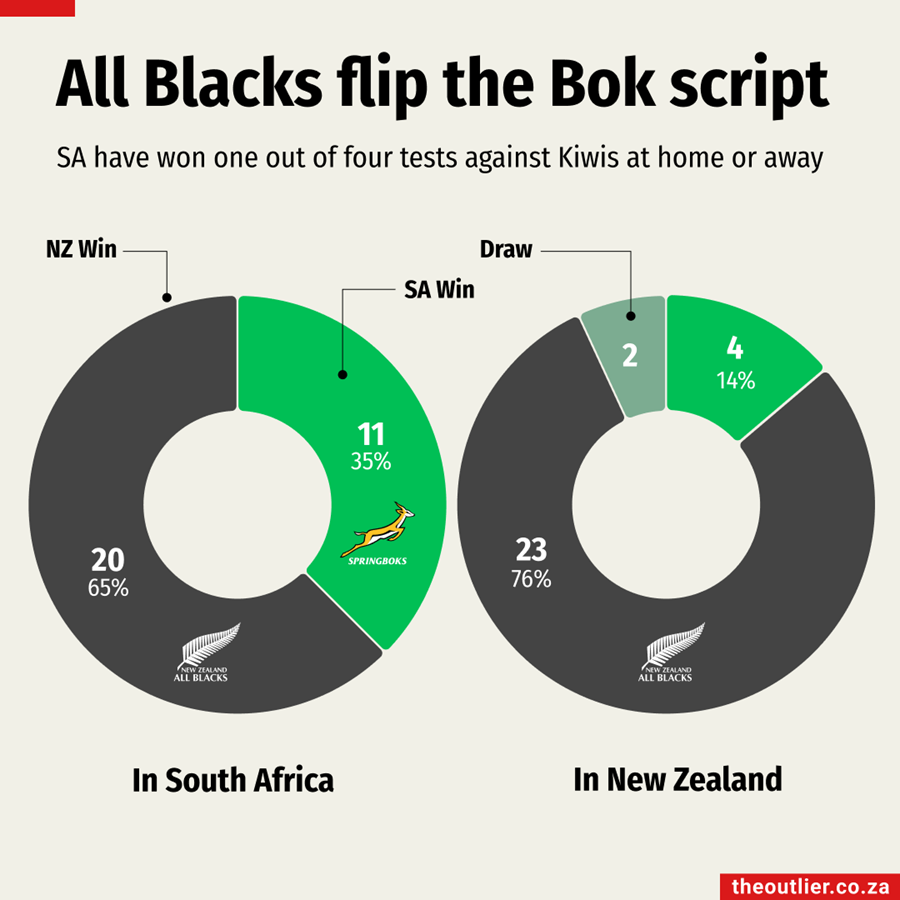
Win some, lose some
Overall, the Springboks have won just under two-thirds of the 370 international matches they have played since readmission in 1992. Their win rate at home is especially impressive, with the Boks winning 73% of the 159 games played on South African soil. Their away record is solid too, with the Boks winning more than half of the 211 matches they have played in foreign countries.
But the All Blacks’ special ju-ju upends this triumphant trend. South Africa have only won 15 of the 60 tests between the two teams in either home country, which is a win rate of 25% for the Boks.
On home soil, the Boks’ win rate against the All Blacks is 35% – less than half their overall home win rate. Their away record against the All Blacks is even more dismal, with the Springboks winning just four and drawing two of their 29 test games in New Zealand – a win rate of 14%.
The points spread tells a similar story. At home, the difference is 147 points, with the Springboks scoring 718 to the All Blacks’ 865. In New Zealand, South Africa lags a massive 357 points behind New Zealand’s 813 points.
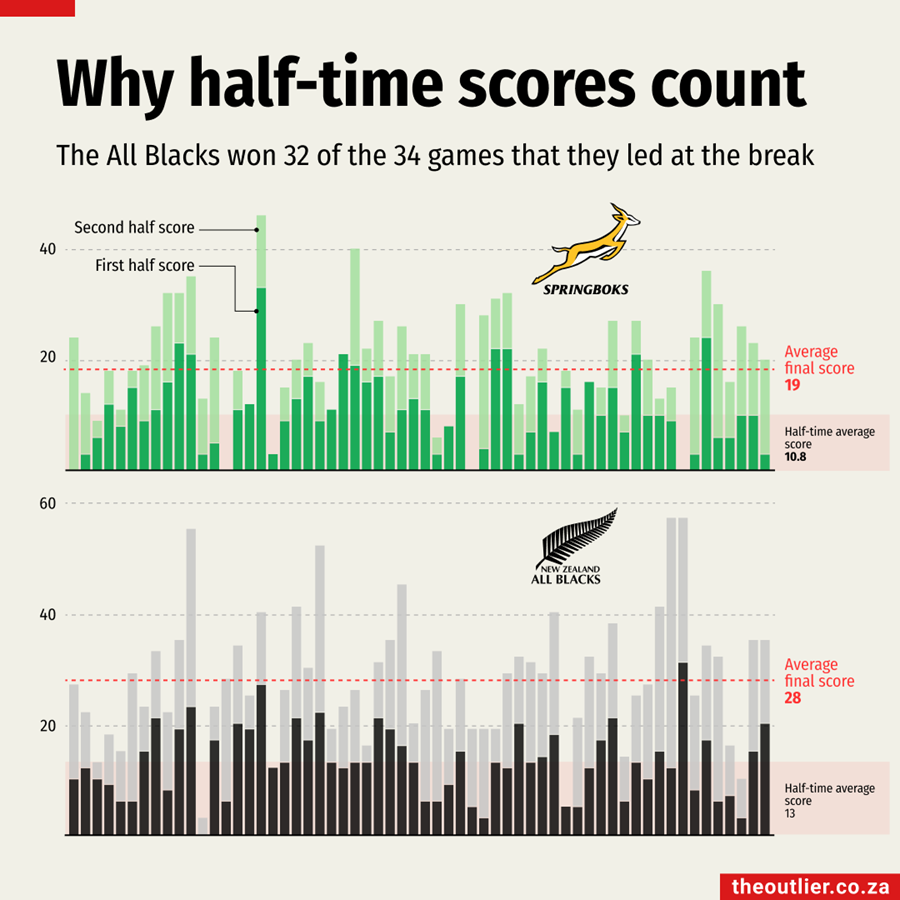
What happens in the first half of the game between rugby’s two greatest rivals often acts as an indicator of the outcome. In their 60 tests, New Zealand has gone into halftime in the lead 34 times. Of those, they’ve been victorious 32 times. The All Blacks outscore the Boks in the second half by an average of six points.
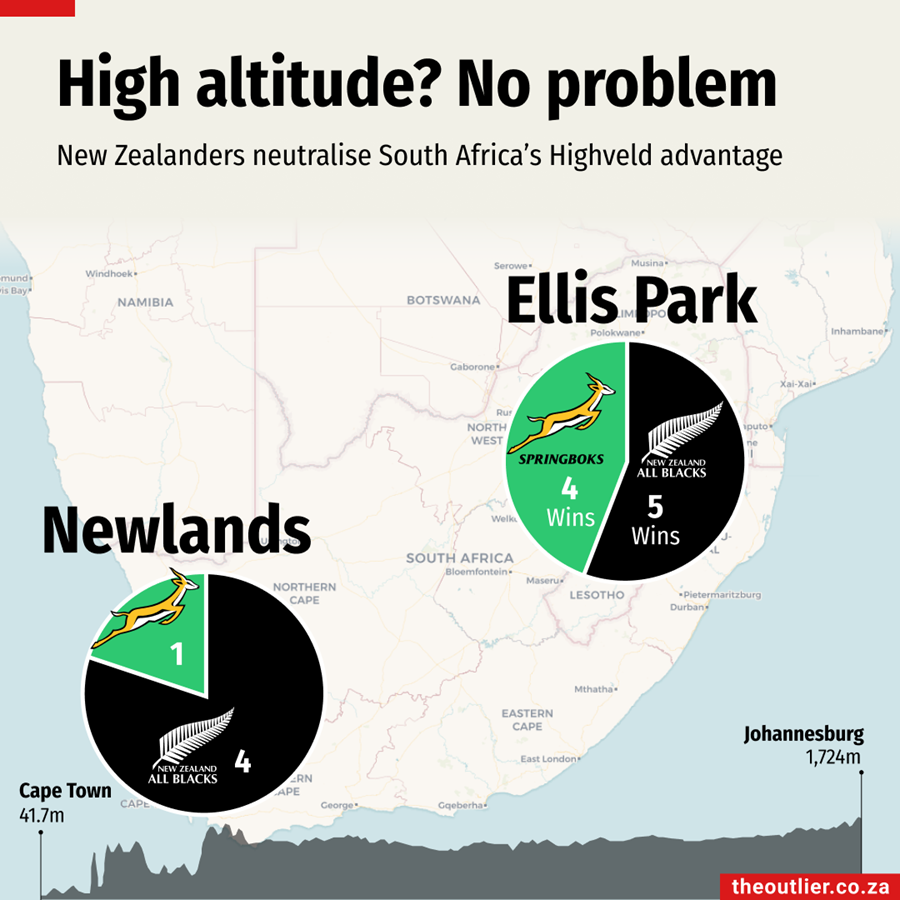
Highveld jig
New Zealand are in South Africa for the latest leg of the 13th Rugby Championship. They are set to play the Springboks in Johannesburg on Saturday 31 August and in Cape Town a week later.
What are the home team’s chances? At an altitude of nearly 1,800m above sea level, Ellis Park (officially Emirates Airline Park) has proved a formidable Bok fortress, with South Africa outscoring their opponents 1,058 to 708 when all matches are considered.
Although SA has lost five of the nine tests it has played against NZ at Ellis Park, the scoring is remarkably balanced (271-275), indicating intense, closely fought encounters. One of the most memorable is the 27-25 win in 2014 when a 55m penalty kick from Patrick Lambie in the dying minutes of the game ended the All Blacks’ 22-match unbeaten run.
At the coast, there’s a clear winner – and it’s not South Africa. The All Blacks are the only nation to outscore the Boks at Newlands, 101 to 67. South Africa has managed one victory in the five test matches played in Cape Town against New Zealand since 1996.
At Newlands in 2017, it was the turn of the All Blacks to win by a single point. It was a victory that rubbed salt into the wounds of the Boks, who had been given a 57-0 drubbing a few weeks earlier in Albany, NZ. (It’s worth noting here that two years later, South Africa went on to lift the World Cup – in Japan.)
Having recently beaten Australia in Australia, the world’s No 1 side are likely to be feeling confident that they’ll defy their Cape Town track record when they take on the world’s No 3 side on 7 September. It will be the first time the two sides play each other at the DHL Cape Town Stadium.
